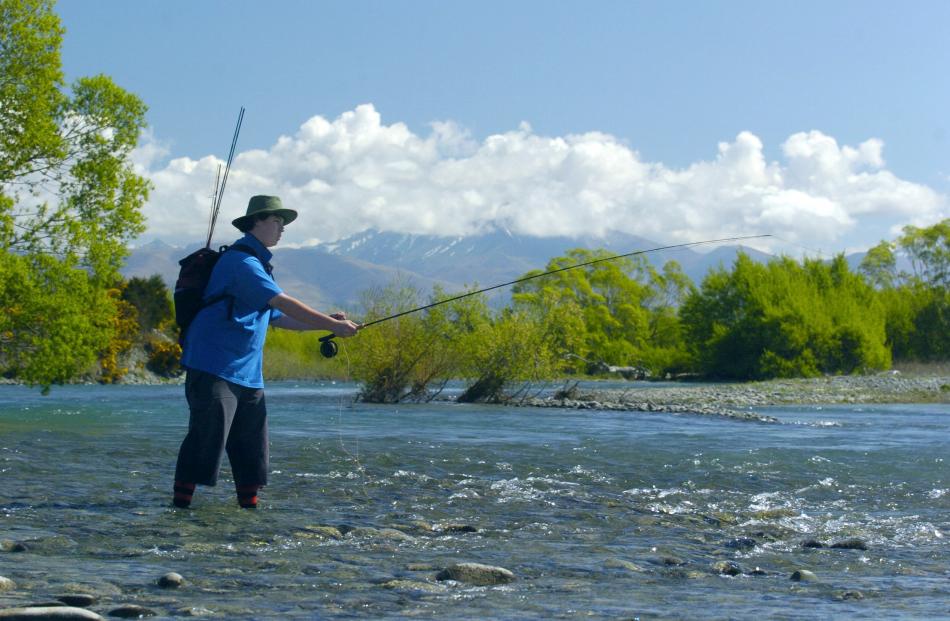

The Federation of Freshwater Anglers has included the Lindis, Pomahaka, Waitaki and Kakanui Rivers on its just released ''Lost Rivers of the South Island'' map, which uses skull and crossbones symbols to denote the 70-plus rivers the organisation says are now ''unfishable or have declined because of intensive farming and large-scale irrigation''.
The Lindis River had been included because of low flow issues, the Pomahaka because of water quality issues, the Waitaki because of the effect of salmon fisheries on angling, and the Kakanui because of the impact of irrigation takes, federation executive member Steve Gerard, of Methven, said.
Other southern rivers on the map include the Hakataramea, Tekapo, Upukerora and Mararoa.
Mr Gerard said the map listed rivers where a significant loss of opportunity to catch fish had been identified, and highlighted ''the significant decline in our freshwater fisheries''.
''The causes generally relate to developments such as large-scale irrigation, intensive farming, particularly dairying, and forestry clear-felling and forestry monocultures within catchments that have impacted on those river environments.''
''It's very eye-opening and a sharp reminder, with an election looming, that water and rivers is an issue to take up with politicians.''
Mr Gerard said the map was compiled using feedback from fishermen familiar with the rivers.

The map project would be ongoing and other rivers might be added. For example, the federation had heard of anecdotal concerns about the Taieri and Manuherikia Rivers, but would not add them to the map until more feedback had been gathered, Mr Gerard said.
Otago Fish and Game chief executive Niall Watson said the map was a useful initiative that highlighted water quality and quantity issues.
He noted the map did not have any grading for rivers, and did not agree with it being so ''black and white'' as saying a river was ''lost or not''.
For example, a minimum flow process for the Lindis River would hopefully deal with water allocation issues there, and the Otago Regional Council was doing much work to improve water quality in the Pomahaka River, Mr Watson said.
But he said the ''anecdotal'' information from fishermen was valuable.
''Sometimes they pick up trends before the monitoring does.''
ORC chairman Stephen Woodhead said the protection of trout and salmon habitat was recognised as important under the Resource Management Act and Otago Regional Council work was helping establish ''appropriate'' minimum flows for catchments, which in turn helped ensure better habitats for trout and salmon.
Comments
Really ODT! there are no facts in this article just heresay, dissapointed in this peice of journalism, opinions should not be presented as fact. The water can't flow if there is no rain in the catchment area! We catch plenty of fish in the pommy.












